copyright 2008, 2012 by Jonathan Zap
Edited by Austin Iredale
I became aware of myself within my dream and found that I was in some sort of desert carnival realm. I stood alone in a vast expanse of chalky dust, some of it powdery, but most of it caked and cracking beneath my feet. In the distance were scattered jewelries of electric light, and as I turned around I saw that they extended in all directions. The scattering of neon jewelry was punctuated by occasional fireballs which rose like jack o’ lanterns, living for a fiery heartbeat before they disappeared into the high desert night. Beyond the lights and fireballs, the chalky expanse was ringed by desolate mountains.
As I stood there, I felt waves of a haunting emotional lucidity pass through me, a sense of my whole life summed up within the peculiar alchemical mixture of blessings and wounds of an entire mutant incarnation, and these feelings seemed to radiate outward into the desert carnival realm, searching for something elusive, like a fugitive and forbidden desire.
As if conjured by my feelings, a large neon-lit sailing ship blasting techno music came careening toward me, spewing an explosive wake of dust. It passed within feet of me, and I saw that it was filled with harlequin-costumed party-goers, cocktail glasses in their hands, their gazes transfixed by carnival thought forms. They were benignly oblivious to my presence, and it felt as if the ship were a conjuration of my haunted feelings, the missed party of adolescence now become visible in the desert night, propelled by blasts of techno into the darkness as it receded from view.
The ship was followed by dusty gusts of desert wind. The elements felt so physical, and I began to realize that maybe I wasn’t merely lucid within my own personal dream. Perhaps I was caught in some collective dream, a bardo playing itself out in a lower astral plane. Perhaps this was a realm where spirits, newly separated from their bodies, indulged unfinished appetites together, a last anything-goes party wherein they could gradually burn out the last vestiges of mortal desires in a realm of nocturnal entertainments and swollen dream objects. When bardo-goers tired of clinging to this final desert carnival, they would be released, their spirits liberated for the further travels that awaited them.
My reverie was interrupted by a man speeding by me, riding a wake of dust. The man, who seemed as oblivious of me as the party-goers, sat on the back of what appeared to be a giant, bio-luminescent snail, a racing snail apparently, which moved several knots faster than the sailing ship and receded still more quickly into the darkness.
With a feeling of dream inevitability, I realized I needed to go toward the carnival lights, toward the other dreamers, into the heart of this harlequin realm. But as I began walking, I felt the desert powder sucking at my feet and resisting my movement. I knelt down to retie my shoes, so as to get a better grip on this strange surface. Shoes and laces were caked in chalk as if they had spent years in hard service as blackboard erasers. This was a desert not of sand, but of a dust or slightly coarse powder like an industrial grade of talcum powder, or a vast and ancient deposit of plasterboard dust.
Perhaps ancient astronauts, exploiting entire solar systems for natural resources, had colonized this planet with an army of robots that mined for gypsum and built a plasterboard factory extending for thousands of square kilometers. Very likely a competing tribe of ancient astronauts had vaporized this factory with a particle beam weapon emanating from an orbiting Death Star, and the particle beam devastation had left only this vast deposit of environmentally toxic particleboard dust, which had been fossilizing in the desert for ensuing millennia. In endless cycles, the ancient plasterboard dust would get repulverized by wicked desert winds, and whipped up into swirling dust storms, only to resettle as chalky sediment, caking and cracking under the blazing desert sun as it waited with mineral stoicism for the wind to begin the cycle all over again.
The desert carnival realm had a strange familiarity and inevitability, like a half-remembered dream world you know you have experienced many times before. There was a certain darkness, but also a sense of playfulness and improbable possibilities. I closed my eyes and thought back, back to the time before the desert carnival realm, and to the strange process that had brought me here from a very different region of the Babylon Matrix.
I knew that my companions and I had emigrated to the high desert carnival in a 32’ vessel that was a sort of desert schooner or land yacht, an “RV” or “Reconnaissance Vessel,” I believe it was called. The Reconnaissance Vessel left from a long-term home base—Planet Boulder—and as I focused on Planet Boulder I felt a file floating upward from the darkness of forgetfulness, an artifact of zeros and ones created in the pre-carnival era….
Journal From the Pre-Carnival Era, Planet Boulder, 22 August, 2008
When about to travel, or about to makes some abrupt change, it is hard for me to believe the reality of it until it happens. It is a theoretical portal, and presently, August 22nd, Friday, 2008, I am so completely in Boulder, or at least my body is so completely in Boulder, that the theoretical future reality of Burning Man seems merely theoretical.
This evening, however, I came to realize a mythological element I would like to add to the Burning Man timeline for myself. My personal mythos of the Burning Man, or Incendiary Person (I assume that burning persons can have more than one gender) came in the form of an email from a brilliant young friend, Noah, who wrote:
“It’s felt almost like all of my bad habits belong to someone else who is sick and dying, and that the thing I identify with is waiting for that sick and dying person to keel over entirely so that I can steal the body and the name and use them to significantly better ends.”
In the reply email to Noah, I wrote:
“It’s almost as if we have a Thanatotic self that is very busily reaching for all the death in life it can get. Its aims seem horrifyingly different than the aims of the other part of us that is waiting for the dead part to die already.
Although it sounds like shadow denial (and maybe it is, have to make some discernments), I choose to make the Incendiary Person the death energy part of myself, the part that wants to be comfortably numb through surrendering to addictions. I choose to go out to the desert to learn how to shift my inner fires to burn with a greener fire, to sacrifice smoldering stagnant tissues into the desert night and scalding sun. As they are expunged, I will experience them turning into bitter alkali dust, which will blow away into the wind. I also intend to allow myself to be visible in the desert to worthy mutants with whom I need to link up for purposes of mutual growth.”
Travel Journal, Somewhere in Wyoming, 24 August, 2008
The trip didn’t start to seem real until we were cruising through an overcast Wyoming. Eric (a requested pseudonym), an electrical engineer who had done more to pull the trip together than the rest of us combined, was piloting the Reconnaissance Vessel. Eric, who earlier in the day had meticulously supervised the packing of the RV with NASA-like check lists, and was continually giving us highly technical pointers about the RV, as well as cautionary injunctions and warnings on a variety of subjects—legal, technical, health-related—suddenly realized that an important item had been omitted from his packing lists—tickets. Four $300 tickets were sitting under his bed in a drawer that also contained various embarrassing items from his porno collection.
Houston, we have a problem.
Trips often don’t seem fully real until the first disaster happens. We were just outside Laramie, Wyoming and turning the 32’ $4 a gallon gas-guzzling Reconnaissance Vessel back toward Boulder did not feel like an option. Charlie, who seemed to be a person of unrelentingly optimistic temperament—at least at this phase of the trip—was sure he had read on the Burning Man website that lost tickets were easily replaceable by going to the office where they could look up the number and reissue the tickets. Eric was skeptical about that, but Charlie cheerfully and repeatedly insisted he had just read that on the official website—lost tickets were not a problem.
Eric, now in full Apollo 13 mode, began brainstorming various Remote Ticket Capture Plans, or RTCPs, the most probable of which involved an emergency cell phone transmission to a neighbor who had a key to his house which could be passed off to a woman Eric barely knew, but whose Burning Man trajectory would intersect with Planet Boulder. Eric would have to suck up the embarrassment of having this woman do the remote ticket capture, or RTC, from his under-the-bed porno drawer.
Accessing internet from my cell phone, I got to the official Burning Man website and read the following:
“We cannot be responsible for tickets lost in your possession and cannot issue replacement tickets.”
Journal Entry Laramie, Wyoming 8:35pm 24 August 2008, T Minus 145 Hours 25 Minutes to Man Burn
Reconnaissance Vessel and crew now several hours into standby mode as we await ticket capture return trajectory rendezvous.
The crew seems agitated, frustrated, restless, but to me, the whole ticket speed bump seems like a portent of a great trip, because my most memorable journeys always seem to involve threshold guardians, often in the form of epic breakdowns.
While in standby mode, I was part of an away team that got to check out a bit of Laramie, a real cowboy town. I enjoy getting temporarily stuck in obscure places, places I wouldn’t usually choose to go to, but once there find myself fascinated with the suchness of place and the dramatic differences in zeitgeist. There were surreal contrasts with Planet Boulder. (In case you’re wondering, I’m not the first to call Boulder, “Planet Boulder.” Boulder is its own world in many ways, and a few years ago it even had an independent newspaper called “Planet Boulder.”) Laramie was, in many ways, the perfect anti-matter planetary twin of Boulder. For example, the per capita rate of Slim Jim consumption in Laramie was almost exactly equivalent to the per capita rate of Soy Chai Maté consumption in Boulder. While the average Laramite was fantasizing about new tractor tires and hot cowgirl pussy, the average Boulderite was fantasizing about upgrading their Prius with Wi-Fi and getting into the yoga pants of the raw foods chef they just met at their Buddhist meditation retreat.
Journal Entry Laramie, Wyoming 8:45pm 24 August 2008, T Minus 145 Hours 15 Minutes to Man Burn
Looks like Eric may have found a Remote Ticket Capture Plan that just might work. Working the cell relentlessly, he was able to find a Boulderite who, for two hundred dollars plus gas, was willing to drive to Laramie with the tickets in his Subaru shuttlecraft. The plan is that after a successful return ticket trajectory rendezvous or RTTR, we’re going to pilot the Reconnaissance Vessel straight through to Burning Man.
At the moment, however, we’re still in standby mode, biting our fingernails in the crowded confines of the Reconnaissance Vessel. I’m an extreme introvert, and I can feel the social claustrophobia intensify, as if I were a member of a German U-boat crew, waiting three hundred meters under the frozen Atlantic, hoping the depth charges don’t reach us while Hans and Dieter, huddled next to me, are releasing a rank miasma of bratwurst flatulence and reptilian fantasies about Marlene Dietrich. In addition to the social claustrophobia, from the earliest age I have always been extremely allergic to noisy eaters (how I loathe them), and one of my companions could make eating applesauce sound like a pack of starving mules chewing through inner tubes filled with broken glass.
Journal Entry Laramie, Wyoming 8:55pm 24 August 2008, T Minus 145 Hours 5 Minutes to Man Burn
Into this uneasy, and mostly silent, tension of standby mode, Eric reveals that the guy we’re depending on for the RTTR, the hired pilot of the Subaru shuttlecraft, is named “Boo.” I remark that it feels like we are waiting for “Boodot.” This horrible pun actually gets a laugh, a sure sign of a demoralized and uneasy crew.
Journal Entry Winamucca, Nevada 11:15am 25 August 2008, T Minus 130 Hours 45 Minutes to Man Burn
We did manage to drive all night and I got more rest, or at least lying down, then I’ve had in many hectic days. A couple of intense dreams. Eric bought us breakfast, but Winamucca, like most places in this country, had food I would ordinarily only handle in a HAZMAT suit. I felt weighed down and undermined even after getting the healthiest choice on the menu. The whole crew reeked of dead chicken embryos and fried grease.
The breakfast reminded me of the return trajectory to planet Boulder from the National Rainbow Gathering in Wyoming earlier in the summer. We had stopped at a Flying J truck stop. I agreed to eat at the Flying J restaurant because it had a salad bar. The most nutritious items in the salad bar turned out to be iceberg lettuce and canned peaches in heavy syrup. Most other “salad” items contained both mayonnaise and meat. I ordered a baked potato.
“You want that loaded, right?”
The waitress intoned the question in such a way that “Yes,” or “Hell Yes!” seemed the only appropriate answers, as only an America-hating moron would want an unloaded baked potato. Out of curiosity I asked, “What does loaded mean?”
“Butter, sour cream, jack-shredded cheddar cheese, and bacon,” replied the waitress.
Anyway, walking out into the glare of late-morning Winamucca, some of the experienced Burners in my crew gave me some more warnings about the conditions I would face out on the “Playa.” Apparently, Playa is a Spanish word for a desert made of ancient plasterboard dust. The warnings seemed unduly dire. Some of the old Burners made it sound like wicked dust storms would scour the flesh right off my bones and if I didn’t constantly drink water I would turn into some kind of desiccated mummy-like husk that would get blown across the desert like a tumbleweed. I had trouble taking their warnings too seriously because I knew that most of them were out of shape and would never have survived past Burns if the conditions were really so challenging. Back in the day, I had been a wilderness guide and had even personally led two ten-day backpacking trips into remote desert canyons where there were no trails, let alone thousands of RVs. From my narcissistic self-perspective, I was an indigenous Fremen, a warrior people who inhabit Dune, desert planet, also known as Arrakis, where a man’s wealth is measured in the literjons of water he owns. As a Fremen I knew that if the merciless desert spilled my life’s blood, then my water belonged to the tribe, and a portable desert sill would be used to extract it from my corpse, the resulting water wealth bestowed on my desert-thin widow. So to me these cautionary old Burners seemed like a bunch of water-fat off-worlders. How tough could this “playa” be, considering that even the name consisted mostly of the word “play.” And in Spanish, doesn’t “playa” also mean “playpen,”as in: “Ponga el bebe en la playa.”?
I noticed that Owl, who was from the same avenue in the Bronx that I was, and who knew a thing or two about living in a genuinely hazardous environment, was mocking aloud what I had only been mocking in my mind, the excessively dire water drill we were getting from Eric. Owl had been to the last year’s Burn and said he didn’t drink half the water he had been told to bring. I was again told about the philosophy of “Radical Self-Reliance,” a phrase that had been pounded into my head from every Burning Man web page. For example the preparation page is emblazoned with:
“RADICAL SELF RELIANCE
Your survival depends on your reading and following these lists:”
But now, with a fellow Bronxite going in, I couldn’t resist that school yard tendency to tag team someone who was already getting it.
“But Eric,” I intoned with tastefully muted sarcasm, “didn’t you say that I can buy all the bags of ice I want there?”
“Yes, they will have several ice distribution centers.”
“OK, because from what I understand, in the hot desert—and by a fairly easy to master, low-tech process—ice can easily be converted into water.”
Anyway, as I walked through the eighteen aisle, florescent lit cornucopia of the Winamuca supermarket, I thought about this philosophy of Radical Self-Reliance, and realized that in the coming week the only thing that would stand between me and the empty desert would be the trail mix I had brought from Boulder and the large plastic jugs of supermarket water I was piling into my cart. At least that’s all that would stand between me and the desert besides Center Camp, where they sell coffee, chai, lemonade and ice, and the 15,000 RVs filled with people offering free drinks and food. If this was Radical Self-Reliance, what would just regular self-reliance look like? Living off the land in a Las Vegas Casino with only a wallet full of gold credit cards to stand between you and the elements?
Since I’ve never been shy about beating a point to death—let me step out of journal mode for a minute to give you an example of what full strength self-reliance looks like. The day after I wrote the above, about a week into the post-Burning Man era, I was invited to spend the night at the mountain hermitage of a Hindu holy man, Swami Paramanada.
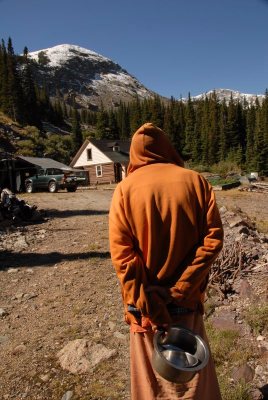
Imagine a Yoda who wore only orange, but with no Jedi powers (at least that I was shown), and instead of growing up on Dagobah, he grew up as Jew in the Bronx and went to my alma mater, the Bronx High School of Science, followed by Harvard. If you substitute “yogi” for “Yoda” in the previous sentence, then the description becomes completely literal.
Never one to infringe on Lucas Film copyrighted material, this sixty-six year old Yoda-like mystic calls himself, “Swami P” a Bronx-like concision of his full name that allows him to feel at home with folks like “Jonny O.” and “Joey B.” Swami P speaks not of “radical self-reliance” or other grandiose phrases as he mixes homegrown vegetables into Yoda-like stews. His cabin is at 10,300 feet, he grows and forages a lot of his food, procures his own fire wood, and when he’s snowed in for several months he has no ability to communicate with the outside world, can’t even plant a holographic distress message into a smuggled droid. The first several years of his quarter century of being a winter hermit was spent with no cabin; he lived in a cave at 12,000 feet. OK, I hope I’ve beaten the point to death now. That’s what self-reliance looks like, not a week at an expensive art carnival surrounded by a flotilla of RVs.
Journal Entry The Road to Black Rock City 6:30 pm 25 August, 2008 T Minus 123 Hours 30 Minutes to Man Burn—Silent Snow, Secret Snow
Finally we got to the last road, the road that would lead us into Black Rock City. From within the Reconnaissance Vessel, it seemed like we were heading into a mist, detail washing out and everything becoming white. Dust, like smoke, began to billow in from the seals around the vessel’s cabin door. Soon we were in whiteout conditions, all the cars and vessels had stopped and the final approach road had become an elongated parking lot. Stepping out of the vessel I saw and felt that I was already in a festival, people were out of their vehicles enjoying the spectacle. Many were begoggled and wore dust masks. I had on my free dream interpretation sign and a young woman approached me to work on her dreams. The dust came in waves, and suddenly I realized that a fantasy I had long had was being fulfilled.
There were always things I liked about snow visually, and particularly I liked the dream-like quality of whiteouts. But I never saw why that visual appeal had to always be teamed with the obnoxious aspects of snow—its coldness and wetness, and not to mention it’s tendency in cities to get really dirty, sooty and disgusting. City snow seemed eager to bear visual witness to where every dog peed and did other canine business, and obviously took some secret delight in becoming an open mausoleum for every form of urban detritus, highlighting in white every cigarette butt and anxiously chewed gum wad. And if you had to step on such an open mausoleum, city snow was only too glad to sponge into your shoes an ice-water distillation of all these putrefying artifacts. If one could only tap into the source code of the Babylon Matrix, it would probably be a relatively easy fix to reset snow so that it would be hot and dry. And now it was happening, a beautiful whiteout, but hot, dry, and powdery clean: a blizzard of the high desert. The whiteout was filled with interesting people, creatively costumed, coming into view, and the caressing warmth of the powdery wind seemed to have an almost erotic quality.
When the air temperature gets close to body temperature then the boundary of mortal skin separating us from externality is no longer this tense envelope it has to become when it is freezing out. When inner and outer temperatures converge, and this gentle dust blows against you, it feels like you are being coaxed out of your mortal envelope of dermal constriction. The whiteout softens all details, tastefully mutes the excess surface texture and visual noise, and there you are in the hot, dry snow with other Burners, enjoying the milky spectacle.
The people seemed fun and individualized, harlequin-attired, but not raucous, not like loud, drunken, party-goers, but intelligent, educated folks any one of which would be ready on day one to be a more thoughtful president than Sarah Palin.
The whiteout went on and on like a silent, secret snow, as if this section of highway had been detached from the Babylon Matrix and was now floating in an afterlife, dust-to-dust, lost highway sort of limbo.
Burning Man radio told us that, “The city is effectively shut down.” Old Burners, some of them with eight or nine Burns notched in their belts, told us that while not the most severe dust storm they had ever experienced, this was by far the longest, and it seemed, like the lost tickets, a threshold guardian testing our resolve to enter the forbidden city.
The whiteout faded to black and became clear desert night, and we reboarded the Reconnaissance Vessel and crossed the threshold, heading into the heart of the high desert carnival…
Sharing the Couch with the Incendiary Person
I’m going to step out of narrative mode for now, but will come back to it later. Now that I am back on Planet Boulder, in an orbit remote from Black Rock City in both time and space, I want to analyze the experience, put the Incendiary Person on the psychoanalytical couch, probe it from many angles, but not from some presumptuous stance like a grey alien with proctological tendencies, but from a place of more intimate analysis where I will join the Incendiary Person on the couch and probe myself as well, see how my own mutant psychology interfaced with the collective mutant psychology of the high desert carnival realm.
Magical Ritual and Self-Importance
I had come to the Incendiary Person in the High Desert Carnival Realm with a magical agenda. If you recall my email to Noah, I intended to ritualize the experience by associating the Incendiary Person with aspects of myself that I wanted to transform. Particularly, I intended to do this by associating “the man” with aspects of myself I linked to Thanatos, the death drive, so that the burning of the man would be a ritual paralleled to my intention to transcend some of those aspects.
This would be a magical act, and before I continue I should make it clearer what I mean by that. First, my definition of magic comes from Aleister Crowley: “Magick is the Science and Art of causing Change to occur in conformity with Will.” Every intentional act is, therefore, a magickal act (see Magick with Tears for more on principles of magic). Also, my strong preference with magical ritual is toward the self-invented kind, not the kind inherited from tradition. When you create your own ritual it can be more intentional, and while traditional rituals may have a deep resonance with the past, they also tend to be done quite mechanically and without very much original and individual intention.
In the days leading up to Burning Man, and while there, it became clearer what aspects of myself I wanted to transform through this ritual. One aspect had to do with a particular type of self-importance I felt ready to sacrifice. The many-layered process of my working on my narcissism/self-importance has been going on for decades and may continue for many more years, or at least until I become head of a world government federation, after which I may just be too busy.
Meanwhile, the work continues. In the most recent phase I’ve become more aware of the metabolism of narcissism, and specifically what happens when my narcissism isn’t merely a subtle overlay, but turns into a process of actually playing out grandiose fantasies in my mind. When that happens, my energy body becomes inflamed and burns with an orangey-red fire, a fire that is synergistic with the inflamed hyper-caloric fire of high-glycemic carbs, coffee and alcohol. What shifted was an increased mindfulness of the metabolic aspect of this, and a new awareness of what a massive energy drain it is. In the first few days of Burning Man, this awareness increased, and even the American Dream theme of Burning Man coalesced with the awareness, as it all seemed part of an inflamed patriarchal ego. It came to seem natural and inevitable that this inflamed, inflated energetically wasteful self would be associated with the Burning Man. The association became alive and vivid in mind. I could see the Incendiary Person within that needed to be sacrificed. The Inner Incendiary Person burned with wasteful fires that undermined its structural integrity. These wasteful fires intensified to gasoline-rubbish blazes when I was inflamed by grandiosity and/or inferior nourishment. Projecting the Inner Incendiary Person onto the Outer Incendiary Person wasn’t too difficult, especially since it was a neon-lit towering monolith in the center of a high desert esplanade.
When narcissistic fantasies did come up, I found myself quickly repulsed by them and aware of their unacceptable cost. For example, I was biking down an avenue in Black Rock City, cool visual details and intriguing artwork everywhere, when a narcissistic fantasy began to play out for a couple of minutes. I stopped myself and realized that during the blocks I had traveled while the fantasy played out, I hadn’t noticed any artwork. I had been captivated by the inferior reality tunnel of my narcissistic fantasy, which deprived me of awareness of much more interesting content in the outer world.
I discovered that the High Desert Carnival Realm was an ideal zone for magical ritual. Burning Man should not be viewed as merely an art festival, but as a magic festival. Much of the artwork was created to work as transformative ritual, and to be at Burning Man is to be in an intense field of mutant intentions and sacred objects. Like Rainbow Gatherings, Burning Man is a zone of heightened magic and synchronicity, and I found these elements coming into play with my own magical intention.
In the world of my own magical symbology, the countersymbol to the wasteful fires of narcissism and hyper-caloric metabolism has for many years been “green fire.” This was a major reason why I wanted to get to Burning Man in 2007 when the theme was “The Green Man.” I spent one afternoon and evening at Entheon Village, where I heard some excellent talks. By this time my personal Burning Man ritual had not only gelled in my mind, I had also recommended to many of the people I did readings for that they do their own version of it, associating the Burning Man with whatever was obsolescent in their lives, so that the Burn would represent a sacrifice of those aspects of stagnation. Daniel Pinchback, in his talk, mentioned the intensification of synchronicity and intention at Burning Man, and as an example he told an anecdote about a friend who decided to manifest figs and closed her eyes. When she opened them there was someone there with a basket of figs they were giving away. The next talk I attended was by Allison and Alex Grey, and while Alex was doing a slide show, I had this fantasy of being able to present him with a laser pointer which he badly needed, as every time he had to point to a visual symbol being projected he’d have to stand up, shadow a major part of the projection with his body and point with his hand and arm. Directly after this talk I went to Center Camp to do more readings and was given a high-quality green laser pointer. I had a fig-like manifestation myself, though it was too late to help Alex’s slide show. As soon as I started playing with the green laser, it’s magical symbology and a new ritual appeared in my mind. This object was the perfect counter-symbol to the Burning Man. In contrast to the wasteful orange-red fire of narcissism/hyper caloric metabolism, the green laser was this tight, absolutely focused and energetically efficient beam of green fire. I discovered a ritual that has stayed with me ever since the green laser manifested. Whenever I find myself being overtaken by a narcissistic fantasy, I feel the wasteful orangey-red fire, and then in my imagination, or in the 3D realm when I have the laser at hand, I see the focused green beam and feel my life energy focus in parallel, inflamed ego becoming heart-centered alertness. So Burning Man seemed to invite and synchronisitically amplify my magical intentions. When the night of the Burn came, I noticed that as we waited for the Man to burn, many people were targeting its monolithic form with green lasers.
Post-Burnum Depression
Sometime during 2007, when I was setting my sights on making it to “The Green Man” Burning Man, I watched a couple of excellent documentaries about Burning Man. An unexpected theme emerged, one that the documentarians probably weren’t aware of, at least when they began filming. I noticed how many Burners seemed really depressed or even despairing when they returned to the default reality. To my intuition, these people seemed to be mutants that were steeped in that pervasive sense of exile, the sense of being in a fallen world that is monotonous, dull, mechanically resistant and oppressive so much of the time. Burning Man was the chance to rebel from this, and to do so in the company of some other brilliant creative mutants who would make their own heroic efforts to manifest a phantasmagoria into the 3D world and bring it to the high desert. For one week, or about two percent of the year, that deep sense of exile and oppression would be lessened, but one of the costs would be the intensified sense of exile and oppression when returning to the default reality, what I call the Babylon Matrix.
I’ve experienced that intensified sense of exile acutely after returning from a number of Rainbow Gatherings where I had intense communion with spiritual allies, felt a sense of community, and was able to publicly play some of my essence role, walking around with my free dream interpretation sign and finding and being found by fellow mutants. When I would return to what Rainbows call “Babylon,” especially certain years when I was living and working in particularly alienating circumstances, I felt that extreme let down, and an intensification of the suffering of exile.
Burning Man is not some isolated phenomenon, but is rather a mutant nexus with connections to almost everything else going on in this realm. Jung felt that most dreams were compensatory, that they compensated for a defect in the waking attitude. Burning Man can be seen as a compensatory dream, concentrating many of the elements deficient in the default reality. The default reality of interchangeable strip malls, etc. is oppressively bland visually, and lacking in highly individual, imaginative mutation, and Burning Man compensates for that, like the white yang dot in the black yin of the yin-yang symbol. The default reality is very alienating to mutants, community tends to be lacking, and the scattered mutants get diluted into a population of mostly mass man. Burning Man reverses a lot of that, but for a limited time only.
The day after the Man burned, many looked exhausted.
I have a few suggestions for Post-Burnum Depression, or PBD. First, many people suffering from PBD have never even been to Burning Man. Mutant suffering in relation to the default reality has been going on for a while—read a Kafka novel. Second, the PBD may, in some cases, serve a valuable purpose; it may help to potentiate a will to change the default reality in valuable ways, may catalyze efforts to find more sustainable mutant communities and hermetic circles, and may further intensify the will to press the art pedal to the metal as rebellion from the default reality. Ideally, when one has an extraordinary experience of some kind—travel, a great romance, an hallucinogenic trip, wilderness sojourn—it needs to be integrated into the more regular life. If this work is not done, then the extraordinary experience becomes an Oz-back-to-Kansas, negative contrast generator. I didn’t feel any PBD because I was looking forward to my continuing relationship to the creative muse, and I knew I didn’t need to import mutant attributes from a giant festival to keep up my connection with them. I have high quality relationships with quite a number of fellow mutants, but many of them are scattered in other parts of the world. The post-Rainbow depression I have felt has to do with the loss of physical, 3D community with a mutant tribe, and having far fewer opportunities to be able to play out my essence publicly. At this phase, I can sublimate some of that loss by focusing on my creative work, which, thanks to electronic media—especially the internet and radio interviews—has an ability to reach other mutants.
Ask Not what the Mutant Nexus can do for You…
The degree of post-nexus depression (PND) you experience has much to do with how you approach a mutant nexus like Burning Man or Rainbow. There are several classic mistakes to avoid if possible. One is to go to such a nexus on the prowl for that one special magical mutant Hottie. This can make someone a selfish, even predatory member of the temporary community. There is a high probability of discouragement when you don’t find the magical Hottie, and even if you did, the exclusionary focus overburdens any relationship and diminishes the value to be experienced in relating to many human types of various ages, genders and appearances. (see STOP THE HOTTIE !) The Hottie quest is one of the main variations of going to a mutant nexus focused on what you want out of it. To paraphrase John Kennedy, “Ask not what the mutant nexus can do for you, ask what you can do for the mutant nexus.” I’ve watched a number of people go to a mutant nexus as hedonistic tourists on Hottie quests, and they usually come away very dissatisfied. The most satisfied people are usually those who plug in, who volunteer, offer services, make contributions, and bond to some particular community within the larger mutant nexus. I have also heard from several Burners that when many of their Burning Man friends get together they tend to talk mostly about Burning Man. This also sounds regrettable as it indicates a dependence on this particular mutant nexus. This suggests a kind of groupie path where one is dependent on importing mutant novelty from the outside, becoming a Burnhead or a Deadhead or a Trekkie, etc., and losing connection to other sources of novelty while focusing with religious fervor on one particular mutant nexus.
Now I feel like I’ve been on the psychoanalytic couch with the incendiary person enough for now, and I’m realizing that probing the mind of an incendiary person can quickly lead to burn out. I’m feeling drawn back into narrative mode and want to talk about the last day of Burning Man, a day that still has a haunted feeling about it.
Fade to Black—the Last Night of Burning Man
It was the night after the fiery orgasm of the man burning. It had burned itself up and exploded into an eye-popping show of pyrotechnic wizardry and fireworks that lit the high desert night with colors that were molten, electric, orgasmic. The last night was a glowing cauldron of brightly colored, sparkly mutant energies. But there was also a soggy aspect to that glowing alchemical cauldron. The soggy aspect was created by the intense admixture of frenzied party energy. If there was a bronze cauldron inscribed with alchemical runes that glowed with green fire, there was also a large Styrofoam punch bowl of eight dollar a half gallon vodka, 7-UP and Hawaiian Punch. There was nothing different or particularly mutant about the frenzied party energy element. Yes, it was another of the golden oldies of the Babylon Matrix phonograph, that never before tried combo of blasting music and intoxication in a socially dense environment.
For better or worse the frenzied party had come and gone, and by the last night there was something of a hungover, post-coital depression sort of feeling in the air. This was such an interesting experience for me, the chance to witness such a dramatic and rapid shift in zeitgeist. Ordinarily, it is difficult to feel real time shifts in the zeitgeist because it doesn’t shift much day to day unless there is a macro shock like a 9/11. Usually it is a subtle and insidious ether pervading everything, you’re swimming in it, and objectifying the zeitgeist can be like a fish trying to objectify water. Usually you notice zeitgeist shift when you have the experience of decades, and can say to yourself, “Wow, the Sixties were so different from the Eighties.” But if you are in a world whose incarnation lasts one week out of the year, a world whose core symbol is a giant incendiary person, and whose core symbol has been burnt to the ground the previous night, then you are in a world where you can taste, smell and touch the shift in zeitgeist as it happens.
The shifted mood was as palpable as a strong wind. I could feel it flowing around me so vividly because my inner zeitgeist was in such a contrasting state. I had gone to sleep at my usual time before midnight, after a long and fulfilling day that included hours of doing free I Ching readings and dream interpretation for people, intense encounters with fellow mutants at Entheon Village, exchanging novel ideas and feeling that glow of mutual recognition, and so forth. In general, I felt ecstatic.
The author doing an I Ching Reading at Center camp
Doing a reading on a day of many dust storms. The dust storms actually helped by reducing the temperature and I managed a lifelong record of 13 hours straight of readings and dream interpretations.
I had finally made it to Burning Man, and it was more than I expected. I had been welcomed into the cauldron by some of the more intense mutants present, and I was excited about getting back to Boulder and being able to write about my experiences. I was particularly excited to write about the cutting edge work I was doing on my self-importance, work that I knew would one day get me recognition as a leading pioneer in the field of self-importance research. My inner ecology was glowing and upbeat, but the strong wind I could feel on my skin was dark and down, down, down beat. That down beat wind had strong notes of abandonment fear, the forlorn and empty feelings of the remaining mutants and quasi-mutants who saw the High Desert Carnival Realm returning to dust before their eyes. The harlequin-colored rug was being pulled out from under their playa-blistered feet, and soon there would nothing but cracked plasterboard dust standing between them and the insidious tractor beams of the Borg Cube Ship you-will-be-assimilated mass of the default reality.
I had gotten up fairly early in the morning and gone to Center Camp to drink a soy chai—I am from Boulder after all—and set up to do dream interpretation and I Ching. As with other days, there was a line of people waiting, and my attention was almost entirely engaged with the interpretations and readings. I’m an extreme introvert, and turning so much of my attention and inner space to one person after another is intense, humbling in some ways, enhancing of self-importance in others. It’s also fairly exhausting, but in a healthy sort of way, like the exhaustion following a slightly over-strenuous work out. I felt fulfilled by the opportunity for service and the chance to encounter new mutants and offer them something that most found valuable. It was with such a fulfilled sense of exhaustion that I left Center Camp after a many hours marathon.
I walked through the clock-like radial structure of the camp and discovered that most of it was no longer there. Imagine going into a movie theater in Manhattan and watching an intense double feature. You enter in the morning, and when you leave it is very late in the afternoon. As you walk out into the city you are shocked to find that while you were in the movies, three quarters of all the buildings, infrastructure and people have vanished into dust.
The mass exit had mostly already happened with the daylight, which was now fading, yet there was still a faint, lingering sense of the exodus and dissolution, and it was now the era of the straggler, the zeitgeist of those left behind. There was a brownish miasma of after-party letdown hanging heavily in the air.
I headed back to my camp, traveling on my battered mountain bike, as the setting sun began to fade to black. Traveling back to camp at sunset had become a daily ritual. Burning Man/day and Burning Man/night were two very different zones, and each required a different set of tools. I needed to drop off my I Ching books, add layers and lights, swap out the tinted desert goggles for clear ones, and so forth. I also felt a distinct need to reconnect with my traveling companions. I had a very different Burning Man agenda than they did; I saw them here and there, but I mostly ventured on my own. Most of them slept in the Reconnaissance Vessel, while my tent was staked in the morning shade of the RV.
The vessel glowed with electric lights that were yellowed by low battery power. I knocked on the door and found Eric, Charlie and Luke; Rob joined us a few minutes later. Charlie, a biochemist with long blonde hair and an Alabaman accent, the other first-timer, had a litany of complaints about Burning Man. It seemed like he was pacing in the vessel when he delivered these complaints, but actually he was up doing practical things, opening a cabinet here, doing something with something over here, something else with another thing over there. He spoke while he moved around the RV doing these things,
“I just feel I saw a lot of dark stuff out there. There’s something about Burning Man that seems dark.”
His southern drawl was exclamatory and the vowel-laden middles of certain words seem to weirdly elongate so that “dark” became “dhaark.”
“How do you mean?” I asked, curious about his perceptions.
“It just seems dhaark. The costumes people woore. Some of the aart woork I saaw out theere.” I struggled unsuccessfully to see it through his eyes, but it didn’t quite compute for me. I had spent so much time, so many years in places that seemed so much darker, and Charlie’s remarks seemed to come from left field.
“Don’t you think Burrrneemange is dhaark, Jahnahthinn?” I thought for a few moments.
“I guess it doesn’t seem particularly dark to me because the costuming and mutant artwork and so forth makes me think of the club scene of the early 1980s in New York City, my East Village years, and that zone reeked of glamorous death energy, and what I see here seems much lighter and safer.”
No one responded to my last comment, and maybe Rob came in at that point; attention was diverted to other things and the darkness of Burning Man topic faded to black. I don’t recall all the transitions, but is seemed like Charlie’s remarks opened a general theme, and the dirty laundry of the Incendiary Person began to come out, piece by piece.
“I was very disappointed in the costumes and artwork this year,” Eric said.
I tried to tune out the heavy telepathic overlay (that he was very disappointed that the magical mutant Hottie of the high desert had eluded him yet again) and focused on the explicit content.
“Really?” I said. “Someone at Center Camp told me that this year’s temple couldn’t compare to the David Best temples of the last several years. I guess David Best is a tough act to follow, no matter what you do people are going to say, ‘It’s not the best.’ But I hadn’t heard that artwork in general was down.”
“Oh yeah,” said Eric, “There weren’t as many creative costumes, and compared to other years the temple kind of sucked.” As he spoke, Eric tiredly but methodically cracked glow sticks and strung the newly phosphorescent tubes into necklaces. The glow stick necklace assembly was done with the enthusiasm of an old pensioner very slowly tying his shoes.
“I have to agree with that,” Rob said in a tone of objective assessment. “Artwork other years was way more amazing. Even the Burning Man seemed pretty weak, him standing on a tower with a bunch of flags, other years he would be on something much more amazing like a pyramid.”
I was starting to catch a bit of the contagious disappointment.
“Hmm, looks like I’m finally catching up with Burning Man after it already peaked.”
“Well, at least you got here before it totally fell apart and sucked,” Rob said in an encouraging tone.
“I wonder if other of the core art mutants like David Best just got burned out? Maybe they’d been doing it for several years and it was getting hard to top what they’d done before. Not to mention the challenged economy and high gas prices and so forth.”
“Something like that,” Rob assented.
Later, in the back room of the RV, I remarked to Rob in one-on-one conversation that I was noticing a general tone of disappointment and depression.
“Oh, I’ve been feeling that for almost the whole week,” Rob said.
I hadn’t noticed his depression. I hadn’t been paying that much attention to the crew. Rob’s comment, like Eric’s, had a huge telepathic overlay, heavy baggage hanging off of every word, and now I saw that Rob, who for so many years had gone to Rainbow and Burning Man on the Hottie quest, and almost always ended by hooking up with someone, had struck out. He had a somewhat ambiguous relationship with a girlfriend back in Boulder, and that had made the Hottie quest that much more ambiguous and dubious. And then the heaviest of the baggage opened in my mind; He felt disappointed about Burning Man, but that was just the particular case of a general disappointment with incarnation. Burning Man was supposed to exemplify everything supposedly exciting about his lifestyle as a mostly single guy with enough disposable income able to buy himself self-tuning guitars, fly to Thailand a couple of times a year, and attend many festivals. Although there had been remarkable growth in his musical creativity in the last year—something that we all had noticed and commented on—overall there wasn’t enough meaning in his life. He was getting deeper into his forties, and the whole party-going-hedonistic-traveler-into-psychedelic-realms-in-search-of-hotties lifestyle was getting old, what was the novelty of Burning Man for me, was the wet cardboard dud of been there, done that for Rob.
Rob was personifying the danger we discussed earlier of approaching a mutant nexus expecting it to fill up all the empty spaces in your life. But the Incendiary Person seemed to have a changeling-like ability to reflect the intentions you brought to the desert. If John Kennedy were in the Reconnaissance Vessel he would have reminded Rob: “Ask not what the Incendiary Person can do for you, ask what you can do for the Incendiary Person.”
After I finished sermonizing to Rob about the need for meaning, we moved back to the main cabin of the Reconnaissance Vessel. Burning Man radio was playing on a loudspeaker above our heads as we listened for word on when the temple was going to burn. A breaking news alert came on that was like a dark note sounding in the air, like one of the resonating gongs at the beginning of ACDC’s “Hell’s Bells.”
“A massive hurricane is heading toward New Orleans. Mayor Ray Nagin called it ‘the storm of the century’ and two million people have been evacuated.”
“Was that a real announcement or were they replaying something from the Katrina Burning Man?” I asked.
“No, that’s going on right now, it’s called Hurricane Gustav.” replied Eric.
The news felt like a kick in the stomach. A couple of years before Katrina, I had spent some long months in New Orleans and in nearby areas. It was more than enough time to catch its unique zeitgeist, a haunting place that seemed to stand perilously close to the edge between matrix and dreamtime, just as it stood perilously close to the edge between land and sea. It had barely survived a nearly fatal beating, and was about to get another one by a hurricane named Gustav. The name sounded unbelievably dark. If “Hurricane Katrina” sounded like you were going to get fucked up by a Prussian Princess with mutant weather-control abilities, Hurricane Gustav sounded like you were going to get bludgeoned to death by a bratwurst-fattened Nazi prison guard.
The ominous hurricane news was coming mostly from a ceiling-mounted speaker just above where I was standing in the Reconnaissance Vessel. The grim voice was like a dark cloud or Sword of Damocles hanging just above my head. As I focused on the voice, another shock came; it was starting to rain. In a few short moments, it sounded as though the Reconnaissance Vessel was being assaulted with a barrage of ping-pong balls. Apparently an aspect of playa physics no one had told me about was that playa dust could make raindrops into wet cement bubbles. These unexpected oddities were now slapping against the fiberglass hull of our craft. It felt like we were colliding with a plague of desiccated, hollow locusts, the percussion of thousands of brittle insect hulls. Wasn’t this what shields were for? I was suddenly painfully aware of how primitive, fragile and shoddy was this land-bound, dinosaur residue-burning Reconnaissance Vessel. The cement bubble assault came right after the ominous announcement, and my mind struggled to connect the two events. Gustav couldn’t have reached Nevada yet, I reasoned, but could this be part of some vast Gustav weather system?
“This is really weird,” I said, suddenly thinking aloud. “I feel like there’s some kind of strange sympathetic magic going on between New Orleans and Burning Man. Just think about it—New Orleans with its once-a-year Mardi Gras and its intoxicated, costumed festival rituals—it’s like the Nineteenth Century version of Burning Man.”
Eric gave me one of his grim Apollo-13 looks, as if he were the captain of a dying Lunar Module, oxygen down to thirty-five percent, and I was wasting breath reminiscing about Mardi Gras.
“You realize that if we get even a tenth of an inch of rain the entire playa will turn into an ocean of cement, not a single vehicle will be able to move, and they’ll have to call in the National Guard?”
I was in a suggestible enough state that Eric’s statement immediately conjured an enveloping vision. In it, I was opening the door of the Reconnaissance Vessel the next morning, the sky overcast in nuclear winter grey, and all around the vessel the harlequin colors of Burning Man were completely coated with wet cement. It looked like the day after the asteroid hit sixty five million years ago, a slag-covered wasteland punctuated by the hulks of dinosaurs frozen in place and coated with volcanic ash. Out in the vast wet cement wastes of the playa were the cement-covered shells of giant snails, and other swollen dream objects, now become humongous fossils petrifying permanently as topographical variations in the playa. High above, black military helicopters circled like hungry pterodactyls searching for carrion. It was a wet cement theme park fossilizing into a mausoleum, a cementary if you will, of almost geological proportions.
I had to snap myself out of the vision and remind myself that Eric was a serial exaggerator of hazards. On the other hand, I was a first time Burner, what the hell did I know? Until a few minutes earlier, I didn’t even know that it could rain wet cement ping-pong balls. I had also been breathing the vapors of another kind of Volcano®, one of less than geological proportions, fabricated in Germany, that was increasing my suggestibility.
“I think New Orleans and Burning Man will share a common fate, either they will both be spared or they will both be whacked,” I said, lapsing into a Volcano®-catalyzed oracular voice.
Moments later, the ping-pong balls stopped like someone had thrown a switch, and minutes after that we were opening the main hatch of the Reconnaissance Vessel, ready to go EVA—one small step for a man, one giant leap for Burning Mankind. I expected to step into a heavy cement goop but found that it was the familiar lunar dust. I was in a hot, powdery night world without a trace of wet cement to be found anywhere.
The crew had been thoroughly vulcanized and was a somewhat disorganized away team, all of us necklaced with phosphorescent glow sticks. Some of us had bikes and others didn’t, part of the disorganization of the away team. Those of us with bikes had to walk our bicycles, and it was no longer clear if we had enough time to make it to the temple before it burned.
We didn’t. There was a pulsing orange glow way up ahead.
“Dhaam it, we missed the tempule bhurn,” said Charlie. Another disappointment merged with the desolate zeitgeist now returning to the foreground of my awareness. There was no techno to be heard anywhere and soon a hot dust storm kicked up, and with it came whiteout. We were in abrasive fog and there were no details anymore, just the blur of colored lights here and there around us. Rob seemed to have an uncanny sense of direction and navigated us in the colored fog. Every so often we encountered other dust-bedraggled Burners who also seemed enveloped by the dark zeitgeist. While everyone had been an excited harlequin partygoer the night before, now everyone became a fugitive in the dust.
Finally we made it to the half-burned Temple, ten minutes or so before it collapsed. This was the center of camp, the hot spot, and yet it seemed eerily empty. While the burning of the Man had been a raucous, News Year Eve Saturnalian overthrow of the patriarchy, the burning of the Temple (which always happens the night after the man burns) was a solemn and funereal rite, Burning Man’s funeral for itself, the immolation of its sacred structure. All the music had been turned off, throbbing subwoofers that had not known a moment’s rest since the start of Burning Man now stilled, and the relative silence was shocking, as my whole nervous system had acclimated itself to the thousand points of techno in the desert night, the 360 degree kaleidoscope of 24/7 sound. Unfortunately, it was not a magical silence either, as we were annoyed by the sound of loud diesel generators in some of the sailing ships that had come to observe the burn. It was a background sound of mundane default reality, a fleet of idling garbage trucks waiting to leave for the Monday morning pick up.
And yet there was something solemn and darkly awe-inspiring about the burning Temple. As I stared at the glowing ruin, I saw that it was becoming more ancient and organic as it burned and the fire devoured the geometric regularity of the structure, leaving asymmetric arrays of molten orange stalactites and stalagmites. And then it all collapsed, and the forlorn crowd quickly turned away, and as we joined the exodus and returned to where we had stowed our bikes nearby, we found that Charlie’s bicycle had been stolen, his perception of the darkness of Burning Man synchronized into an unwelcome manifestation.
And with the reoccurrence of the manifestation principle (I had gained a green laser, Charlie had lost a bike), it is time to pause the narrative once more, to journey within, and once again on the psychoanalytic couch with the Incendiary Person.
Parabolic Zeitgeists
On my last night of the high desert carnival, as I pedaled my bike down a long avenue of dust to get back to my camp, I noticed that there were little zones of exception within the post-Burnum zeitgeist. The exception zones were generated by the people who were loading their vehicles or otherwise preparing for immediate departure. These little zones of exception offset the prevailing zeitgeist, highlighted it in sharp relief. The departers had a distinctly different metabolism and mood, were more yang or fiery, and had a different flow rate through time, as they were in sped-up action mode, and were living out a distinctly different timeline. The departing Burners lived out a timeline of immediate and intense transition, while most of those left behind were living out a timeline related to the lingering shadow of the burnt man.
Those left behind, therefore, had a much more complete experience, and were able to witness a crucial stage in the brief lifecycle of the incendiary person. Similarly, the exodus days of a Rainbow Gathering have been chances for me to integrate some of the shadow material that might get neglected during an intense dose of Rainbow or, for that matter, a week-long binge of harlequin colors in the high desert. Rainbow and Burning Man are both cases of where an intense realm comes into being to live for a short while, and at certain phases of its life cycle its zeitgeist can shift at a rate in which hours may equal decades. Both have a parabolic structure with a fiery orgasm at the peak of the parabola. For the National Rainbow Gathering, it is July 4th; for the Incendiary Person, it is the night of the burn. After the orgasm both decline quickly. But the post-coital descent of the parabola is also a very interesting time—a liminal space, a boundary land, a time to see interesting things flickering in the shadows.
And since we have arrived at liminal space and flickering shadows, and have also been talking about orgasmic parabolas that decline quickly, perhaps this is as good a time as any to lie even more intimately on the psychoanalytic couch with the Incendiary Person and probe his incendiary eros.
The Eros of an Incendiary Person
Evaluating eros has always been a notoriously tricky and unreliable enterprise, and even a world-class self-importance expert like myself could easily be subject to projection and distorted views. Years before I even approached the Incendiary Person, I had a dim view of his eros. Investigating Burning Man from afar, I heard all sorts of stories about Jiffy Lube camps, and various promiscuous antics promoted as though they were daring and avant-garde. This foolish attitude is one that I’ve already written about, and it’s easier for me to quote myself than writing about it yet again. In “Born under a Blood Red Moon,” I wrote:
“Sexuality, and eros in general, has undergone a patriarchal enantiodromia or pendulum swing. Not too long ago in Western culture, and continuing to this day in many subcultures, sexuality was highly repressed and was supposed to occur only in marriage and for the purpose of reproduction. This form of patriarchal sexuality then flipped over, especially in the 1960s, and the new norm became promiscuity. As the lyrics of the classic 1970 song by Crosby, Stills, Nash and Young put it: “If you can’t be with the one you love, love the one you with.” What both sides of this extreme oscillation have in common is the patriarchal destruction of eros. “Eros” is being used here to refer to a person’s capacity for deep communion or even oceanic merger with another. Eros does not necessarily have to involve physical intimacy and it is quite common for sexual transactions to involve no eros at all. Pornographic sex on the level of the genitalia, sex as a metaphor for power, and many other popular versions of sex may be entirely unerotic.
The more recent patriarchal norm for sexuality, the anything goes approach, is in some ways even more male-dominated than the older version that emphasized repression. Male sexuality has biological underpinnings predisposing it toward promiscuity. The reproductive advantage for males is to deposit their sperm in as many places as possible, but for females it is to have a single stable partnership that will help during pregnancy, nursing and bringing up a child (though some feminist writers dispute that). Before AIDS, certain sectors of the male gay community, witnessed some of the more extreme forms of impersonal promiscuity in gay bathhouses, etc. With no females around to moderate sexual behavior, they defaulted to the male biological tendency toward promiscuity.
Very much like the enantiodromia of menstruation, sexuality was once seen as powerful, dark, dangerous, and in need of taboo and intense restriction. In the degraded patriarchal counterview, it is no more significant than a mutual back rub. An absurd by-product of this counterview was one of the most oxymoronic phrases invented, “casual sex.”
But sex isn’t casual on the microbiological plane—it could start a life or end a life. As above, so below. It isn’t casual on higher planes either. When you have sex with someone you are merging your essence with them, energetic fields are colliding, and neither person will ever be quite the same again. But to the modern patriarchal materialist, sex was described—especially pre-AIDS—as no different than any other form of cardio exercise like running or bouncing on a trampoline. (See George Leonard’s excellent book The End of Sex: Erotic Love after the Sexual Revolution). The publication of Alex Gray’s book Sacred Mirrors, was a huge cultural milestone, because a vision was revealed of sex and eros as a profoundly transformative experience of energetic merger, as well as of anatomical penetration.
Ken Wilber, and others who are influenced by the “Spiral Dynamics” model of human evolution, talk about the “pre/trans” fallacy. People seek to rebel from the conventional by regressing to the preconventional, while falsely believing that they have transcended the conventional. People rebel from the earlier form of conventional sexuality (uptight, fundamentalist repression) by embracing the new norm (promiscuity), and yet they convince themselves they are being daring and avant-garde and so forth, when they are actually just conforming to an enantiodromia that is reverting to the preconventional—a primitive and unerotic form of sexuality.
The new patriarchal norm for sexuality, exploitive promiscuity, is particularly toxic for women, as it is, like the body type they are expected to emulate, based on adolescent masculinity. Romantic relationships are generally expected to involve sexual exchange very early in their development, and this, I believe, is a major reason why they tend to fail so quickly. However compatible two people might be, by engaging such an ultimate state of intimacy, when there is no foundation of emotional intimacy nor recognition of the complexity of the other person, when one is still dealing mostly with projections and counter-projections, the result is mostly a short-circuiting of the gradual development of an intimate relationship. Beginning a relationship with ultimate intimacy can often create an inherently unstable structure, bound to topple, especially as idealizing projections revert to disillusionments. However, I don’t want to fall into the patriarchal tendency of one-size-fits-all pronouncements on sexuality, because if there is anything that should be obvious about sexuality and eros it is the fantastic individual variability of every part of it, so there should never be a standardized template set out for everyone to follow in every circumstance.”
What I also find absurd are people who justify promiscuity as virtuous with the claim that they are helping to “overcome inhibitions.” Typically they speak as if they were rebelling from Victorian England rather than the present sex-saturated era. Worse, they conflate inhibition with repression and foolishly presume that it is necessarily negative. But many neurological functions are inhibitory; inhibition is essential to survival and efficient functioning. Ask someone with Tourette’s Syndrome what it’s like to have a deficit of inhibitory function. Losing inhibitions is usually disempowering, a loss of free will. Most of us could benefit from greater powers of inhibition in a number of areas in our lives. As Goethe says, “A master first reveals himself by his ability to hold back.”
On the other hand, given how much I heard about the promiscuity of the Incendiary Person, I was pleased to find that it wasn’t as in-your-face as I had anticipated. An ad invited me to “The largest circle jerk on the planet” But I never saw anything like that happen. There was lots of nudity, and lots of people dressed up and undressed so as to look as polymorphously perverse as possible, but even then things were not always what they seemed. Again and again I would meet someone, often someone who approached me for a dream interpretation or I Ching reading, who looked like a cross between a gutter punk, a transvestite hooker, a time bandit, and a down-on-her-luck Las Vegas showgirl. Based on this presentation I expected a chaotic, incoherent person caught up in a frenzy of promiscuous antics, but when we began talking I often discovered instead an intelligent, sedate, soberly thoughtful person who, on further acquaintance, turned out to be hitting on me to buy a timeshare.
In general, Burners are not quite the wild, harlequin, raucous crowd they might seem at first glance. For instance, if you consider many of the art projects at Burning Man, the technical know-how to pull off all the pyrotechnics, the fire balls erupting above crowds of people, the towering structures full of flammable liquids and electricity, and all these combustible and explosive elements happening together with relatively few injuries or mishaps, you realize that they are the product of highly disciplined, and sometimes almost heroic efforts. Also, I doubt there is another event on the planet where so much free alcohol is being provided at so many different places. Living in the University district of Boulder, I’m used to the crowds of loud, drunken, stupid, obnoxious people euphemistically referred to as “college students.” At Burning Man, given the abundance of intoxicants, I saw relatively few people who had lost control of themselves. There was a distinctly adult quality to the partying, and most, often in contrast to their costuming, conducted themselves in a dignified, respectful manner.
Although the name is unsubtle, the advertised activity was not observable from the outside.
There were a limited number of kids at Burning Man, but except for pervasive nudity it seemed that efforts has been made to keep overtly sexual behavior contained in camps that were very clearly identified, such as the unsubtly named “Fuck Club.” Still, this was obviously not a place to take your Mormon grandchildren as an alternative to Disney World. The timing of Burning Man, the first week of September, is also very inconvenient for young people in school, or families with school age kids, which is a shame because there is so much amazing visual novelty to inspire young imaginations. If the Incendiary Person ever asked my advice, I would be in favor of accommodating the young rather than those who need, like proselytizing Christians, to be showing off their sweaty, jiggling wares in every public space they can. I’m all for people doing whatever consensual things they want in privacy, but I’ve seen quite enough sexual attention vampires strutting their stuff as if they were being original, when anyone with sense ought to realize that there is no flavor of sexual kinkiness, unless it requires batteries, that wasn’t already a golden oldie in the days of ancient Egypt.
If it’s politically correct these days to object to secondhand smoke, why isn’t it allowed to object to the bioenergetic hazard of someone who wants to exude creepy sexual energy in as many public places as possible? This is a rhetorical question, of course, because I also realize that it’s a slippery slope between allowing such objection and forcing everybody to wear a burqa, and whipping people with a cat o’ nine tails to cleanse them of their sins, and all that.
Maybe I’m just jealous. Part of me may envy those with more access to the Hotties of the high desert. Perhaps I’m indulging sour grapes and there is something much more cutting-edge about the combo of blasting music, intoxication and promiscuity that I’m not getting, and that might be just what is needed to overthrow the New World Order and stop global-warming and so forth. Or maybe it’s just fun and I’m being a spoil sport. One historian of early America defined Puritanism as, “The desperate fear that someone, somewhere might be having a good time.”
I want to do justice to the complexity of the subject, and so I should also admit that in the incendiary zeitgeist was also a feeling that some Burners, somewhere, were involved in genuinely creative, gender-bending mutant eros. I don’t want to rule out that possibility, and don’t want to fail to appreciate the possible implications of Bonobo chimps, famous for their low rates of violence and polymorphous promiscuity.
Most of the polymorphous promiscuity of the Incendiary Person was, at least during my tour of duty in the High Desert Carnival Realm, anecdotal. Of course, there’s a self-selection factor at work: I chose not to enter Fuck Club, Jiffy Lube camp, etc. But here’s an example of anecdotal polymorphous promiscuity as narrated by Rob and recorded by me with a little digital recorder I always have by my side:
“My friends are walking around trying to meet girls, and they’re doing everything they can, and they have this whip cream. So they’re going around saying, ‘How about if we spray this whip cream on you and lick it off you?’ But they are only having mixed success with this. So this attractive woman walks up, and my friends ask her about if I put this whip cream on you and lick it off and the woman says,
‘You’ll lick it off anywhere?’ And he says,
‘Yeah, anywhere.’ And she says,
‘Anywhere?’ And he says,
‘Anywhere.’ And she says,
‘And you won’t let me down?’ And he says,
‘I won’t let you down.’
So she pulls it down and, of course, there’s a couple of inch cock there, and she puts the whip cream on it.”
“So did he lick it off?” I inquired.
“Apparently he did,” said Rob.
The moral of the story: Be careful what promises you make, because a gentleman always keeps his word.
This was about as risqué as it got for me, an anecdote removed two times. I did get invitations to go to the Poly Camp where my friend Mark was spending almost all his time. After Burning Man, Mark seemed to be genuinely feeling fulfilled, unlike most of the crew of my Reconnaissance Vessel. Mark felt that he had bonded to the Poly Camp community, and I heard a good report from Michael, a highly intelligent writer I met at Entheon Village, who spoke glowingly of a talk he attended at Poly camp that was both an extremely thoughtful and well-moderated discussion of proper boundaries and codes of respect for the polyandrous. Mark told me that people at Poly Camp were very alert to predatory types who were very obvious to the discerning eyes of the veteran polys. One time when walking by Poly Camp I saw two people, alone in their exposed geodesic intimacy arena, really going at it. I didn’t notice any discerning polyandrous lifeguards on duty, but from a distance it certainly looked consensual.
However, some stuff I saw left a rather sour Jiffy Lube sort of taste in my mouth. But although it was distasteful, none of it was shocking, and all of it was pretty tame compared to the early Eighties club scene in Lower Manhattan I had lived through. The ratio of exhibitionists to those capable of being shocked was so disproportionate that Burning Man exhibitionists who lived for shocking people were basically left as hungry for crumbs as desert church mice. I’m reminded of an Onion article (http://www.theonion.com/content/node/28771) with the headline “Marilyn Manson Now going Door to Door trying to Shock People.” Here are a few excerpts:
OVERLAND PARK, KS–Stung by flagging album sales and Eminem’s supplanting him as Middle America’s worst nightmare, shock rocker Marilyn Manson has embarked on a door-to-door tour of suburbia in a desperate, last-ditch effort to shock and offend average Americans.
“When we first laid eyes on Overland Park, with its neat little frame houses, immaculately landscaped lawns, and SUVs in the driveways, we couldn’t wait to swoop down on it like the Black Death,” said Manson, born Brian Warner in Canton, OH. “We were like, ‘Welcome to our nightmare, you bloated, pustulant pigs.'”
“Look at me, suburban dung,” Manson told Wesley. “Does this shock you?”
When Wesley replied no, he said Manson became “petulant.” Recalled Wesley: “He started stamping his feet and shaking his fists, saying, ‘What do you mean no? Aren’t your uptight, puritanical sensibilities offended? Don’t you want to censor me so you don’t have to confront the ugly truth I represent?’ So I say, ‘Well, not particularly.’ Then, after a long pause, he says, ‘Well, screw you, jerk!’ and walks off sulking.”
That evening, Linda Schmidt was preparing to drive her daughter Alyssa to a Girl Scouts meeting when she found Manson standing on her porch draped in sheep entrails.
“I knew who he was, but I was kind of busy and didn’t really have time to chat,” Schmidt said. “He just kept standing there staring at me, expecting me to react in some way.”
On Tuesday, they arrived in the tiny Detroit suburb of Grosse Pointe Farms, where stockbroker Glenn Binford answered his doorbell to find Manson hanging upside-down on a wooden cross as Ramirez performed fellatio on him.
“I just stood there thinking, now there’s a boy who tries way too hard,” Binford said. “I mean, come on: Homoerotic sacrilege went out in the late ’90s.”
Of Yoga Vampires and other Annoying Parasites
In any sort of big festival where there’s a bubbling cauldron of human energy, you are going to find a variety of low grade vampires trying to suck at the excess energy as much as they can. One obnoxious variety is the attention vampire—someone who will take advantage of the loosened rules of social conduct to demand or solicit attention they don’t deserve. If given attention, they inflate like a swollen leach, and only get greedier for still more attention. Since they depend on getting their excitement from the outside, they are energetically bottomless pits that can never be filled up. They are like the hungry ghosts or “pretas” described by the Buddhists, creatures with insatiable appetites, but tiny mouths that don’t allow them to ever find satiety. (See my brief article: Energy Sappers and for a more thorough discussion of hungry ghosts and the general subject see: Mind Parasites, Energy Parasites and Vampires)
So that it doesn’t seem like I’m picking on the Incendiary Person, like I’m trying to tear him a new fire portal or something like that, I’ll give a couple of examples from Rainbow. Any observant person could give examples from any sort of social setting, a big festival, however, can attract a feeding frenzy.
I was sitting at Tea Time, a tea kitchen at the 2008 National Rainbow Gathering, drinking tea and wrapped up in high quality soulful conversation with a couple of friends, Jack and Noah. A mustachioed guy I never saw before got on the tea line, and his energy was instantly a jarring disruption of the whole kitchen from the moment he got to the counter. In a really loud rabble-rousing sort of voice he asked, “Hey, what time is it?” In unison, the crew of Tea Time, without even looking up from what they were doing, responded with the expected: “Tea time!” The guy had the attention vampire’s classic self-satisfied, dirty, smug and insidious grin, that head-in-the-honey-jar look. He acted as if he were the life of the party, the one able to get all the little hippie people dancing to his beck and call—and wasn’t that what they were all there for anyway? Having just elicited this chorus of free energy he tried the classic rabble rouser’s call and response technique again: “Hey, what time is it?” Now only one person, who was involved in doing something, answered automatically with a flat, disinterested “Tea time.” Other members of the Tea Time crew were now just staring at the vampire with astringent looks that gave nothing. They had all registered him as an annoying parasite, and I felt a surge of pride and admiration of their group and individual intelligence, awareness and intuition. These were higher order Rainbows, the kind who are more interested in doing free service at a kitchen as compared to the Drainbows that come to party and suck up any free anything they possibly can.
The attention vampire tried the call and response technique, “Hey what time is it?” two or three more times, and not a single person responded. He sucked all the energy he could with that method and now switched tactics. Tea Time had three insulated vats of tea that were clearly labeled with signs that also listed all the herbal ingredients. Most people just humbly asked for a variety of tea, thanked the server and moved on. But the vampire began pestering the server, a particularly attractive young woman, asking nonsensical questions about all the teas. Then, in his loud and insinuating voice, he asked the server for samples of each tea, as if the server were only too delighted to pleasure him in any way she possibly could, as if he were a billionaire at a private wine-tasting party set up just for him. “Now could I try a sample of the—what did you call that tea again?”
I’m from the Bronx, confrontation is my element, and I would have loved to confront this obnoxious parasite about what he was doing, but I was a guest in someone else’s kitchen. Now if he had done this at the kitchen I was part of, Tea in the Woods, I would have felt free, but it wasn’t my call, the crew of Tea Time had the right and responsibility to control boundaries in their kitchen, and they were choosing the high ground of tolerance. Finally, the Drainbow, having sucked whatever he could out of Tea Time moved on to a new target. Meanwhile, another vampire had shown up, a yoga vampire.
The yoga vampire was a middle-aged guy with a tanning store tan and shorty-short denim shorts carefully cut to show off to maximum advantage his shaved tanning store legs that had the muscularity of a middle-aged dance instructor’s legs. He began asking only the most attractive young women there if they wanted to do partner yoga with him until he found one that acquiesced. He had some sort of European accent, which he seemed to be reveling in as if not only were he some sort of yoga god, but one with a European accent as well. He began stretching the young woman across his back, etc. as if she were an exquisite fashion accessory he was modeling, and all the while he was striking these absurdly narcissistic poses as if he were the lead model at a photo shoot for Obsession Perfume for Women by Calvin Klein. He was so much more than just another European partner yoga master, he was a genuine artiste as well, the Mikhial Baryshinakov of partner yoga.
I wanted to go up to him and ask if he would like to have a mirror installed on the ceiling so he could see himself better. I was much more annoyed than my two companions by the yoga vampire because I’m so much more a narcissistic personality type myself and therefore more sensitive to, and irritated by, narcissism in others. This is what Jung would call “shadow projection,” except that in the classical Jungian sense the projection has to be unconscious. Nowadays when I find myself intensely irritated by another narcissist I try to use the energy of the irritation to increase my vigilance about my own narcissism; yet another example of my cutting-edge work as a leading pioneer in self-importance research.
Now that I’ve given a couple of examples of parasites at Rainbow, I can discuss parasites I observed sucking greedily at the Incendiary Person. And so that it doesn’t seem like I’m trying to feed on the parasite topic, I would like to point out a larger purpose—I believe that we need to more clearly name and recognize various forms of parasitism at work in the human sphere, and in many cases to call them out, to confront them.
Pasty Dan
The mildest and most borderline case I observed was an obese guy in his fifties who called himself, “Pasty Dan.” Pasty Dan might not have deserved mention except for the fact that when I did readings and dream interpretation at Center Camp, he was often set up near me, so I had to observe his routine for many, many hours. Pasty Dan, whose t-shirts advertised that he had been playing out his very specialized role at Burning Man since 2002, lived to put pasties on women’s nipples. If Janet Jackson ever needed to do another costume malfunction, Pasty Dan would have been only too glad to put a self-adhesive pasty on her nipple.
There were pasty stickers with various patterns neatly organized in a sectioned box, and a special spray of something that was supposed to help them stick on. A certain fondling of each woman’s breasts was, of course, a very significant part of the pasty application protocol that Pasty Dan had developed over the years. This went on for hours a day, every day.
Pasty Dan, although quite irritating to observe, was only barely in the objectionable parasite category because what he was doing was so obvious, up front and, if not necessarily erotically consensual, was based on an obvious implied contract of consent between the pastier and the pastee. It would be hard to imagine a woman naïve enough not to know what Dan was getting from his side of the contract, though many of them may not have realized in advance how touchy-feely the pasty application protocol was going to be. Pasty Dan had a disarmingly pathetic quality. He seemed like he was probably a pretty lonely guy who lived for the one week a year in which he would get to have these very brief, sticky encounters with women’s breasts.
I tried to channel my irritation with his presence into greater vigilance about my own narcissistic motives in doing readings and dream interpretation, and to remind myself of the often-slippery differences between the selfless and the selfish act.
Picture Frame Sam
Another annoying, borderline case was Picture Frame Sam, a mustachioed guy in his fifties who wore those pajama-like, colored workout pants and no shirt, exposing a hairy gut of which he seemed inordinately proud. I named him “Picture Frame Sam” and have no idea what he calls himself. His modus operandi involved circling around Center Camp carrying a big gold picture frame and asking attractive young women if they would like to be part of his art project. If they agreed, he would hand someone his camera and pose the young woman and himself, with his self-satisfied smug, insidious, mustachioed grin, behind the picture frame while their picture was taken. To be fair, it was too noisy in Center Camp for me to hear his rap and catch all the details. Maybe what he was doing was actually to help Darfur or free Tibet, but to me it seemed like his “art project” was going to be a big masturbatory trophy wall, and that he was using these women, like the yoga vampire, as fashion accessory sex objects to adorn his ego self-image. More so than Pasty Dan, I had the sense that most of the young women did not realize what they were really consenting to when they agreed to participate in the “art project.”
Face Mask
The next parasite definitely crossed the line and I did confront him. He was a guy hiding behind a face mask of desert military camouflage and dark goggles. Face Mask moved around in some sort of stylized manner as if he were a very, very poorly trained Ninja, and would get into people’s space and try to enact some sort of ritual with them. I became aware of Face Mask while I was doing a reading for a young guy, and found him ninjaing his way up to the young guy and putting his (Face Mask’s) drink, which had a large plastic straw projecting from it, into the young guy’s hands. Face Mask then put his own mouth to the straw and began sucking from the drink still being held by the young guy. When this happened, I thought of the guy I had photographed earlier in the day whose t-shirt read: “Friends don’t let Friends Drink Friends.” To me this little ritual seemed an obvious gesture of surrogate vampirism, not to mention that it was a rude and nonconsensual intrusion on a reading in progress, so I immediately intervened.
“Your ritual seems pretty dark. You need to think a little bit more about the implications of what you are doing, because it’s perfectly obvious to others,” I said, my eyes trying to bore holes through his goggles.
Face Mask immediately ninjaed back with his drink. He stood in the middle of Center Camp foot traffic uncertainly for quite a few minutes, looking like a discombobulated ninja, his head jerking this way and that, as people streamed by him. I imagined that he was upset that he had backed off so quickly, and was now formulating some sort of counterattack. Suddenly he knelt down into the space of a seated woman, who was three back in line waiting to get a reading from me, and tried to intrude a ritual on her. The woman, who had witnessed the earlier confrontation, and who had a tough, Australian accent and intense blue eyes, immediately dissed Face Mask hard and with perfect, dismissive self-confidence, like a person with an 18” Crocodile Dundee bowie knife being pestered by a 17” paper-mâché crocodile. It was too noisy for me to catch her exact words, but it was something like, “Get away from me you annoying creep.” Face Mask immediately ninjaed away and disappeared into the woodwork, never to be seen by me again.
“Breaking Open the Skull with the Crushing Grip of Angst-Ridden Replicant Fingers.”
Once again, the presence of petty demons and annoying parasites should not be taken as a criticism of the Incendiary Person. In the Babylon Matrix, wherever there is a bubbling cauldron of life, there will be parasites trying to suck the life out of as many bubbles as they can. We certainly don’t want to neglect what’s going on with the parasites because they are a key element in so many of the layers of the ecosystem in which we find ourselves. On the other hand, to become preoccupied and obsessed with the parasitic aspect is often another way of succumbing to the parasitic. Take, for example, the frenzied 9/11 Truth person, who must proselytize the truth of 9/11 from every coffee shop in the nation. I am not objecting to the content of what they have to say; often they present very convincing information and, if correct, their message is extremely important. I am also not objecting to any cutting edge 9/11 Truth researchers really breaking new ground because, an obsessive focus is justified in the case of someone pushing the envelope. But if you’re just yet another 9/11 Truth preacher, and your main way of relating to others is through your 9/11 Truth ministry, whether they are receptive to it or not, then that starts to look like you are lunch for some sort of parasitic memes and want to spread the contagion.
Again, I don’t want to obsess about the parasites attached to the Incendiary Person. As Jung said, “The larger the man, the larger the shadow.” Given the size of the Incendiary Person, it is only to be expected that there would be an outsized shadow as well. Jung also said, “The brighter the light, the darker the shadow.” And the Incendiary Person emits a very bright light, and the subtle corona of that light is an evolutionary radiance. Ignoring the radiant aspect would be like ignoring a three-thousand-pound tie-dyed elephant alone with you in a seedy motel room. Such an elephant cannot be ignored, and neither can we ignore that an Incendiary Person is, by definition, a radiant person. It’s true that an Incendiary Person is unstable, and has only a limited lifespan, but that only seems to intensify his radiance.
TIGER, tiger, burning bright
In the high deserts of the night
Just as Eldon Tyrell tells Roy Batty, a Replicant who is rebelling from his genetically programmed lifespan in the movie Blade Runner, “The light that burns twice as bright, burns half as long. And you have burned so very, very brightly Roy.”
Similarly, when you live synchronously within the high desert lifecycle of an Incendiary Person, then both you and the Incendiary Person may burn so very, very brightly for a time. As Roy Batty puts it, “I’ve seen things you people wouldn’t believe. Attack ships on fire off the shoulder of Orion. I’ve watched c-beams glitter in the dark near the Tannhäuser Gate . . .”
And like the self-aware Burner, Roy Batty, a self-aware Replicant, has the honesty to admit that:
“I’ve done questionable things.”
And also like the Burner, Roy Batty ends the scene by crushing Eldon Tyrell’s skull and gouging in his eyes with his powerful Replicant fingers, just as the Burner will sacrifice the Incendiary Person in a blazing pyrotechnic frenzy that will reduce the Incendiary Person to smoldering ashes and rubble blowing across the desert.
Eldon Tyrell, far more than Daniel Pinchbeck, knows what it’s really like to “break open the skull” and discover that what you have created has taken on a rebellious will of its own, just like my Incendiary Person narrative, which keeps growing and mutating and is now drifting back toward the shadow, when I said I wanted to focus on the light.
Unlike Roy Batty, I have not watched c-beams glitter in the dark near the Tannhäuser Gate. But I have seen other, equally amazing things. I have seen giant bioluminescent snails race across the desert night. I have seen a fetus glowing within a cubed space made of the green silicon of printed circuits. I have seen desert-blasted Imperial Walkers impaled on rebar and painted in fading Rastafarian colors. Memories of Burning Man glitter like c-beams within my shaven head, which has so far evaded the crushing grip of angst-ridden Replicant fingers.
“The Default Reality is the Nightmare from which the Incendiary Person is trying to Awaken.”
Burning Man continues to glitter in my mind because it was such a brilliantly realized dreamscape. As I have discussed extensively elsewhere (see Crossing the Event Horizon—The Singularity Archetype and Human Metamorphosis), our species seems to be hurtling toward an event horizon where the physics of the dreamtime and the physics of waking life merge. An aspect of this is a kind of visual telepathy, the Logos Beheld, where instead of making little mouth noises at each other to communicate, we are able to create shared dreamscapes, alternate realities and timelines as our memes of communication. The Incendiary Person is a hybrid creature with a foot in the waking life and a foot in the dreamtime. During its brief life span, it presents you with a phantasmagoria of portals into individual imaginations, but the portals are laboriously realized out of petrochemicals, sheet metal, plywood, and so forth. The Incendiary Person is a living manifestation of Terence McKenna’s evolutionary advice to the species: “Push the art pedal to the metal.” Unfortunately, we are still at an evolutionary phase where pushing the art pedal also involves pushing a lot of petrochemicals and toxic exhaust. Overall I think it is worth it, because the Incendiary Person is a crucial hybrid, but the trend is toward the etherialization of the art pedal.
While we temporarily incarnate during the waking time in this heavy, gravity-bound world of ours, the Incendiary Person plays a key role that is almost like the white yang dot in the black yin of the Yin-Yang symbol. It is the zone on the planet that comes closest to being a Logos Beheld— a place where our psychic intentions become realized as communal dreamscapes. Places like Disney World and Las Vegas at night are three-dimensionalized dreamscapes, but notice that like television they are a monologue created by commercial designers, and you are merely a passive observer. The Incendiary Person is more like the internet, every observer is also a participant and mutates the Incendiary Corpus to some extent. As in a communal telepathic dreamscape, those with the most focused psychic intentions create the most mutation. A David Best creates an entire, fully realized temple that becomes a crucial organ in the body of the Incendiary Person. Another person contributes themselves, their costuming, their presence, and that personal contribution will range from awesome to awful, from mutagenic catalyst to just one more of those.
The Incendiary Person is a white dot, a white crow, an alchemical cauldron that comes to life and boils with harlequin-colored fire for one week a year. The one mutant I talked to in the whole city-sized high desert carnival who seemed to really understand this was Alex Grey. Every art project I saw at Burning Man that related to the American Dream (the official 2008 theme) portrayed only the dark side of the American dream.
Alex, in his talk and slide show at Entheon Village, revealed the white dot in the shadow of the American Dream. Alex focused on the Eye of God, the radiant eye on the pyramid symbol woven right into the most potent magical artifacts of the American Dreamscape—money.
(For more on Money as magical artifact see Green Energy Vortex—Money as Far from Equilibrium Dissipative Structure and the Secret of Turning the Green Energy Blues into a Mountain of Gold Doubloons)
What potent paradox that the very symbol associated with the dread of New World Order, its Sith-like black magicians and archparasite puppet mastery manipulations, should also be the perfect, diamond bullet-like archetypal symbol of the Logos Beheld. The Eye of God symbol appears on our money like white dots included in a realm so often darkened by materialism. The dark shadow of the symbol’s context in the American Dream also makes it a complete yin-yang in itself, the dark heart of the dark force, and the triumph of the light concentrated into one point.
As Terence pointed out, Philo Judeas, a Jewish philosopher who was a contemporary of Christ, said, essentially, that we would be at the Omega Point, or evolutionary event horizon, when the logos—the voice of God—-was beheld instead of heard. Alex had stepped forward to show the light force implicit in the American Dream, a dream that is so contagious because it is also the dream of an entire metastasizing and metamorphizing species. For all the dark materialism of the American Dream, the human dream, there is also an often hidden will toward the light.
After his talk I told Alex that I noticed that every project that related to the theme of the American Dream reflected the dark side.
My own hastily assembled art project reflects the dark side as well. (The burned toy soldiers may be a little hard to make out in the image)
I then added something like, “America is, for people on the left, the main zone where it is politically correct to project the shadow—and it’s not like it doesn’t have a hook for that shadow—but it is also the place where the pioneering work on photography, motion picture technology, videography and CGI took place, not to mention your visionary work. It is also the place where Burning Man occurs. Jung thought most dreams were compensatory, and your talk was like the perfect compensatory dream within the larger Burning Man dream, like the white yang dot in the black yin, because you revealed the hidden light implicit in the American Dream.”
Later I realized that I should have mentioned to Allyson Grey that her talk related to the compensation function also. When I had last seen Alex and Allyson, the night of the last Winter Solstice at COSM in New York, they had seemed younger and more radiant than the previous time I had seen them which was the Winter Solstice of the year before. Allyson’s talk seemed to explain the change I had observed. As a way to focus their intentions on raising funds to build what would essentially be a temple of the Logos Beheld, they had resolved that for a year they would abstain from all drugs and eat a vegan, raw foods diet. This fast, as Allyson related, was quite an adjustment as for most of their adult lives they had been daily pot smokers. Within the dark mass of hedonistic overindulgence at the desert carnival, her talk was also a white dot, a testimony about the power that can sometimes be found in abstinence.
On the day of exodus from the Incendiary Person, something happened which helped to frame the whole experience as a white dot within a dark mass. The faithful reader of this narrative will recall that the journey to the Incendiary Person involved threshold guardians and shocks. There was the discovery that we had left without most of the crew’s tickets, the stranding of the Reconnaissance Vessel in Laramie as we lost precious hours that also led to our being trapped for hours in the longest of dust storms outside of Black Rock City. On the way back, the dark shock happened to some of our friends traveling in another vehicle. We were not very long into our return trajectory to Planet Boulder when I got a call on my cell, and heard Rebecca’s very distressed voice,
“We just had a roll-over accident, all three of us are banged up pretty bad, vehicle totaled. Can you pick us up?”
Within an hour the Reconnaissance Vessel was pulling into a desolate junkyard at the edge of the desert. Stepping out of the vessel, I was pretty shocked by what I saw: Rebecca, Michael and Sarah all had open lacerations and blood-stained clothing, and the Toyota 4-Runner was a crumpled wreck, shards of safety glass sparkling under the hot desert sun. They all looked traumatized except for Michael, who was an EMT and a wilderness guide as well as the totaled vehicle’s owner (though not the driver, Sarah had dozed off at the wheel). He was smiling as if he had just gotten through an unexpected wilderness adventure. They were all limping and in pain, and there were a number of cuts that would require a few stitches. They had sent away the ambulance because Sarah had no health insurance and they all preferred to get treated back in Boulder.
Their injuries were right at the edge of where you would have to insist that they go to the emergency room. But Michael was an EMT and he felt sure that it was OK for them to travel with their injuries. We loaded their most important stuff into the Reconnaissance Vessel and gave them first aid as we drove. Rebecca, who had PTSD from earlier events in her life, went through some crying jags. It would also turn out that she had several cracked ribs. She threw a thank you party for the rescue crew of the Reconnaissance Vessel three weeks later and still looked traumatized, and had been suffering insomnia since the event, which she attributed to the continuing pain of the cracked ribs.
The funereal mood of the last night and then this rude confrontation with the asleep-at-the-wheel, gravity-bound, rough-edged parameters of the Babylon Matrix, shattered the white dot of the Incendiary Person’s high desert dreamscape. We had been to a mutant nexus, but it was one that we journeyed to in a primitive fossil fuel-burning vessel. The radiant corpus of the Incendiary Person was wrought out of perilous mortal tissues and we were still subject to all the limiting parameters of the mortal/corporeal version 1.0 body
But there are other dreamscapes, other mutant nexuses that are displaced from some of those limitations. When you meet up with fellow mutants in a virtual environment, like those provided by World of Warcraft or Second Life, the experience is generated with a finer physical substrate—photons, electrons, zeros and ones. Sure, there are a lot of computers involved, and those computers are manifestations wrought of petrochemical plastics and toxic metals, but the hardware to dreamscape ratio is vastly improved in a virtual world than in a high desert carnival world. In both worlds, people are costumed and visually mutated, but in the virtual world you can be far more of a changeling, choosing avatars that match your intentions without having to succumb to the stubborn parameters of mortal/corporeal version 1.0 bodies.
At this phase of the rapidly evolving technology, the VR experience is still too limited to fully draw me in, but I can envision a time when that will change. A few months ago I had seen the CGI-intensive movie Beowulf, which employed the latest version of converting human actors into CGI avatars. A huge flaw in present VR environments is that the social communication is greatly impoverished by the mechanicalness of the Avatars. A human face has more muscles than the face of any other animal, and it performs its own Logos Beheld every nano second, conveying a wealth of information through its ever-changing expressions. A few weeks after seeing Beowulf, it occurred to me that the next event horizon with VR might be when there was enough distributed computer power that with a little webcam on your monitor the software could map your facial expressions in real time onto your avatar, so now when you encountered other Avatars in the VR realm it would have something closer to the psychological depth of 3D encounters.
On the other hand, while we are still incarnated in the Babylon Matrix, our spirits sheathed in mortal/corporeal version 1.0 bodies, and our psyches so heavily invested in our social mammal lifestyle, then we are still going to want to be able to encounter fellow mutants in such embodied forms. So for now we need both types of dreamscapes—3D mutant nexuses like Rainbow and Burning Man, among others, but also the virtual worlds that are evolving much more rapidly.
Several times when I was at Center Camp, I saw a young woman who was creatively costumed and who also had a very severely burn-scarred face. Her scarred and reconstructed face, which would have stood out glaringly in a conventional setting, here seemed to almost disappear in a world of masked and costumed and visually mutated people. You could tell that she was having a great time and seemed to feel liberated by the setting. In a virtual world, however, her M/C V 1.0 body would be no limitation at all, and she would be free to take on any form, and be any gender that she cared to.
The Incendiary Person is a person who seeks to be a changeling, a person who can morph and mutate in accordance with psychic intention. If magic is, as Crowley tells us, “The science and art of creating change in conformity to will,” then we can see that the M/C V 1.0 body is both a nexus of magic and the constraining force of anti-magic. Every time we intentionally move a finger we have performed a magical act, and yet there are so many frustrating ways in which we cannot get our M/C V 1.0 bodies to conform to our will. We can pierce these bodies, tattoo them, painfully modify them slightly by undergoing the surgeon’s knife, laboriously alter them through lifting heavy weights and so forth, but even these slight modifications take heroic efforts performed in a context of intense mechanical resistance. But even our most heroic labors cannot get our bodies to conform past certain parameters: we cannot fly, none of us can run a one minute mile, none of us can shift our gender at will, or dramatically change our height or age. However, in a virtual world we can shift all those parameters with mere mouse clicks. The plasticity of the virtual world is profoundly liberating and allows us to escape for a time our mundane identities. A New Yorker cartoon shows two dogs sitting in front of a computer monitor. One dog is saying to the other, “The great thing about the internet is that no one knows that you’re a dog.”
The Incendiary Person is in the desert, a place of vision and a place of struggle, and he struggles, often successfully and against great mechanical resistance, to bring the dreamtime and the waking time together. Like a rainbow, it emblemizes the realm of the divine making a covenant with the world of the mundane. But eventually what is now a struggle and tenuous covenant will become the new default reality. At the end of a discussion of the future of virtual reality an interviewer asked Terrence,
“So in the future we’ll all be living in the movies?” Terrence replied,
“No, in the future we will all be movies.”
Burning Man represents a chance to be a movie in the 3D realm. It is a collaborative movie, but you have great latitude to mutate the role you play in the movie, and even to create your own scene inside of the larger movie. One of the most potent reasons for post-Burnum Depression is that this collaborative movie you were part of, a movie that functioned like a corpus callosum connecting the waking and dreaming hemispheres, has burned down, and now you must return to the mundane world, the default reality with its visual blandness and alienation. Instead of being movies and living out our individual mutant dreams, we are compelled to live the collective dream of the Babylon Matrix. As James Joyce said through his character Stephen Dedalus, “History is the nightmare from which I am trying to awaken.” For the Incendiary Person, the default reality is the nightmare from which s/he is trying to awaken. Out in the high desert, s/he does awaken partly, but in a way that is unsustainable and is soon burnt out. And yet a certain promise, a fragile rainbow covenant still lingers in the Burner’s imagination.
>Epilogue:
A poem I wrote at Burning Man 2012
Harlequin, Harlequin Burning Bright
Harlequin, Harlequin Burning Bright,
Following techno currents in the night.
Did you ever find your heart’s desire?
Or did it burn up with the Man,
Atop a 50,000 person pyre?
You who were blasted by dust and sun—
What strange currents drove you through
the pyrotechnic haze?
Was it merely the same old same old same old golden oldie craze?
Was it merely sex, drugs and rock n’ roll?
Faux fur and steampunk goggles adorning the same old troll?
Or was it an urge toward new provisions?
An urge to see the desert night enchanted with nocturnal visions?
What was it about the desert carnival invitation that made me feel I must?
What was it that I saw shimmering and sparkling in the dust?
 ZapOracle.com home to the free 720-card Zap Oracle
ZapOracle.com home to the free 720-card Zap Oracle

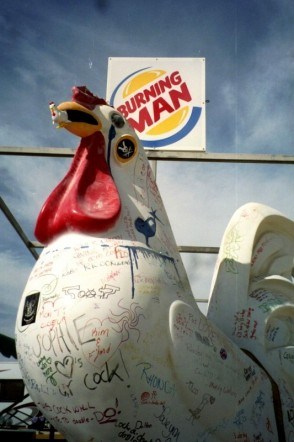
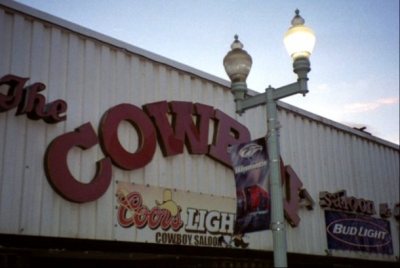
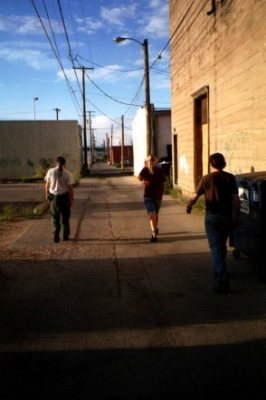
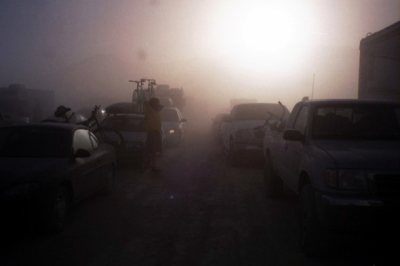

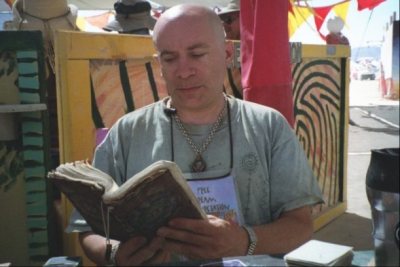
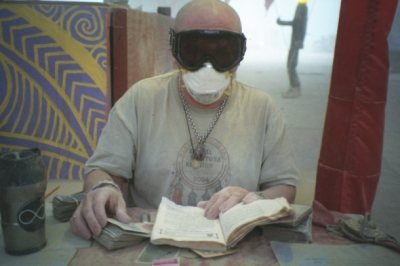
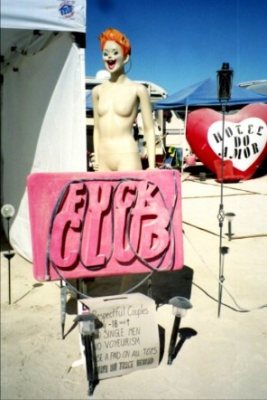
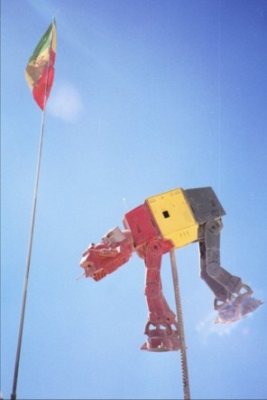

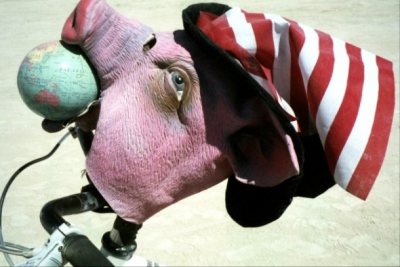
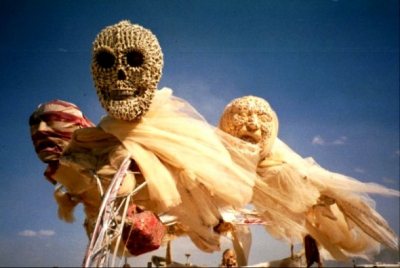
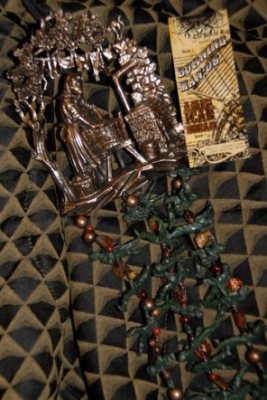
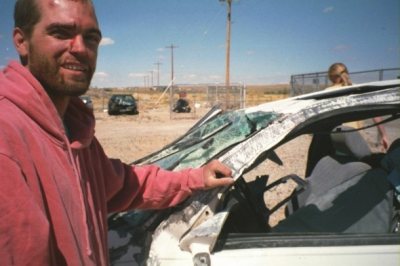






Noting well the plethora of question marks at your probing sentence ends, one might gently query what gist of meaning bends.
Does the writer suggest serious misgivings for feverish Harlequins’ in magicked trance of dance or secretly imply – guilty thrill for similar whirlings? s’il vous pla it?
What is an urge toward new provisions? What is faux and what is faux real?
Les points d’interrogation are catching.
This noon, new Moon does yonder break, bohemian carnival hope is fake? flake? or internal ache?
That is the question to kindly take. Je vous remercie.
Fantastic!